Many authors find it difficult to define the genre of their work. There’s nothing wrong with that as you’re writing – seeing your own art as so unique as to defy classification is perfectly healthy – but when it comes to marketing and publishing, you need to know what you’re selling.
That’s why, in today’s article, we’ll be looking at why genre matters, how to apply it, and why going deeper than surface categorization could assuage your worries and sell more books.
Why does genre matter?
One reason that so many authors struggle with genre is that they think it’s insufficient for categorizing art, and they’re right. Genre is a terrible tool for describing the heart of a book, and writing to genre – using genre parameters to define what you should write – is likely to stifle the creative spirit.
Instead, genre is for readers. Hundreds of thousands of books are published each year, and they join the ranks of the millions of books that were published before them. Genre may be a clumsy tool, but it’s a good place to start when you’re trying to find something you might like. You may not consider your book fantasy or sci-fi, but if that’s the closest genre descriptor, it’s probably fantasy or sci-fi enough to help your ideal reader zero in on it.
Of course, they’ll find that even easier if you get a little more specific, but we’ll get to that in a moment.
What does genre mean?
A genre is just a category of art. In writing, genres cover some basic styles of fiction, with subgenres clarifying specific styles even more. What’s interesting to note – and key to understanding genre – is that genre categorizations tend to depend on aesthetic (the look and feel of the world you describe) rather than ideas or even structure.
We’ve talked before about how, for authors, it’s useful to consider how the Star Wars movies are far more fantasy than sci-fi in terms of how they’re put together:
Science fiction is just that, fiction about science. The science might be invented, and it might be of any stripe: political science, psychology and sociology, electronics, or the type with beakers and skeletons, but all sci-fi revolves around a central ‘what if..?’ question that addresses a deeper query… The Star Wars movies, however, are not built on this kind of thesis. The story is of a (jedi) knight on a quest to save a princess. The castle may be a star ship, the duels fought with laser swords, but the futuristic tech is never used as a lens through which to examine our own world.
– The 3 Golden Rules Of Writing A Science Fiction Book
That’s good advice for authors (if I do say so myself), but it doesn’t apply to readers. Readers use genre to find the aesthetic worlds which they want to explore, and that means that Star Wars, with its aliens, robots, and laser-based weaponry, is firmly sci-fi.
It also means that the dominant aesthetic is usually the key arbiter of a book’s genre. Jim Butcher’s The Dresden Files combines mystery and fantasy, telling the story of a wizard PI. There’s a little crime in there, a lot of detective fiction, and some noir sensibilities, but when a bookseller puts it on the shelf, they’re probably going to file it under ‘fantasy.’
Why? Because it’s more likely that fantasy readers will enjoy the crime fiction than that crime readers will enjoy the fantasy. Genre primarily identifies the flavor of the world you’re going to be visiting, not the nature of the story you’ll be told when you get there. There are interesting roots to this, but they don’t change the practical consequences for authors: the ‘feel’ of your world is the first thing you need to describe.
What genre is my writing?
Book genres change with the times, and opinions differ on what’s a major genre, but it’s likely a novel is one of the following types of fiction:
- Thriller – Fiction built around the fast-paced pursuit of a commonly life-or-death goal.
- Fantasy – Fiction typified by fantastic aspects, such as magic.
- Sci-fi – Sometimes called ‘speculative’ fiction. Fiction typified by scientific aspects, such as nonexistent technology.
- Horror – Fiction built around instilling dread or fear in the reader. Sometimes but not always featuring supernatural aspects.
- Mystery – Fiction built around the solving of a mysterious set of circumstances.
- Crime – Fiction typified by a focus on criminal activities.
- Historical – Fiction typified not just by being set within a defined time period, but drawing context from the cultural understanding of that time.
- Western – Fiction typified by aspects of the American frontier.
- Romance – Fiction that focuses on a romantic relationship as the source of its drama.
- Erotica – Fiction primarily intended to instill arousal in the reader.
- Literary – Fiction that focuses on realistic, weighty issues, typified by character-focused writing and a lack of other genre features.
Some fiction books that would otherwise fall into these categories are instead defined by their audience, for example Young Adult fiction and Children’s literature. Again, categorization leads with the fact that most immediately winnows down the audience. The same is the case with books of poetry or short fiction – here, the genre aesthetic comes after the form, again because the market has decided that’s what most governs buying habits. A reader looking for sci-fi is apparently less likely to accept a book that’s also short fiction than a short fiction reader is to accept a book that’s also sci-fi (though only ever in terms of general market trends).
If you’re writing non-fiction, things get a little fuzzier, as non-fiction tends to be treated like a single genre. Despite this, non-fiction categories such as memoir, self-help, biography, sporting, travel, or true crime might be treated as genres in their own right in terms of bookseller categorization.
What subgenre is my writing?
Okay, here’s where things get trickier. There’s no way to cover every possible subgenre, but the idea here is to start narrowing the field. For example, ‘sci-fi’ is a wide-reaching genre that encompasses subgenres like soft science fiction (less focus on practical science, like in Doctor Who), hard science fiction (lots of focus on practical science, like in 2001: A Space Odyssey or The Martian), ‘-punk’ genres like steampunk and cyberpunk (sci-fi that imagines science following different paths, like maintaining steam power, as in the Mortal Engines Quartet), Afrofuturism (sci-fi that imagines science extending from the cultures of the African Diaspora, as in Black Panther), as well as countless combinations of sci-fi and other genres, such as the space Western and sci-fi horror.
If your writing combines genres or genre conventions, it’s almost a certainty that there’s already a term for what you’re doing. Google these key facets and do some snooping. If your writing dabbles in genre conventions but doesn’t embrace them, there’s probably a term for that too. Your story might include some fantastic elements but be mainly about real life; that’s magical realism. Similarly, your story might have some definitive genre features but have a striking aesthetic that doesn’t quite fit that mold. In urban fantasy, magical elements are presented in a contemporary urban setting, while crime fiction that revolves around the court system would be labeled courtroom drama.
The easiest way to identify your subgenre is to find books that are similar to your own and see how they’re categorized. This is a fix that can fall foul of the problem that makes it necessary; if you don’t know what genre could apply to your book, you probably also struggle to identify what books are like your book (or, at least, your book seems too complex to be summarized by comparison).
That’s fair, but you’re going to have to overcome this problem with some work. First, imagine that you have the ability to place an advert for your book in the back of four other books. Which books would you choose? This tells you what audience you’re going after, and four books should be enough to get a sense of who you’re targeting. Next, consider your aesthetic – remember, the point isn’t to identify your book’s heart, it’s to attract people who already like the aesthetic experience you’re offering. Finally, take a look at the options the market is already aware of. You can click here to access a selection of Kindle’s suggested keywords for different genres. Which of these most apply to your writing? Remember, you’re not trying to explain the entirety of your book, you’re trying to advertise its aesthetic.
Under ‘Mystery, Thriller & Suspense,’ Kindle suggests keywords like ‘heist,’ ‘conspiracy,’ and ‘dark.’ If all you’re considering is plot, all of these keywords could apply to the same story, but when you start considering aesthetic, they get more specific. For example, a ‘dark’ thriller might include sexual violence, but a ‘heist’ thriller suggests a more light-hearted affair. This is one of the core values of genre labeling – it helps people who will enjoy the ‘feel’ of your book to find it, and it warns off people who won’t. As you pursue the ideal genre label with which to market and publish your work, keep this in mind: you’re trying to describe the vibe.
Choosing your genre
While choosing your genre and subgenres can be complex, remember that it’s not the be-all and end-all. You should really get the genre of your writing right, but subgenres are murky, and there’s room to learn and change your mind.
Do real research, describe aesthetic/tone/vibe over content, and be open to adjusting your decision down the line as you grow more accustomed to working with genres.
Ultimately, genre labels are a tool that are sometimes useful for academic discussion and mostly there to help stores sell books. They’re not going to capture the soul of your work, but they can help you communicate with first-time or potential readers, and that’s the spirit in which to approach them – an inexact tool that’s just the first step of an enduring relationship.
Do you write in an unusual genre? Have you changed the genre listing of your work in the past? Share you experiences in the comments below, and check out our genre archives for more insight into the right label for your work.
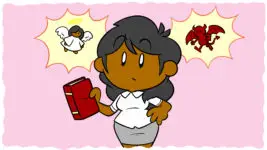
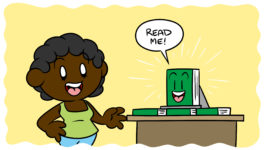
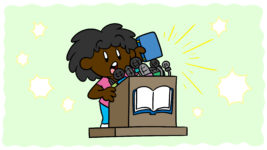
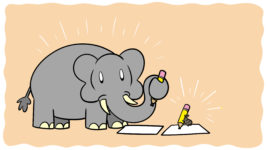
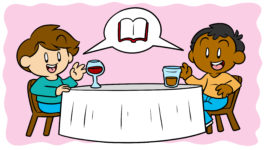
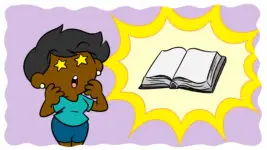
16 thoughts on “How To Figure Out The Genre Of Your Book”
Informative, useful, and well written. Best of all, I now know what my genre is. Thanks, Rob.
My pleasure, Jim.
The best article I’ve read on genre so far!! Thanks for the help and many “aha” moments.
My pleasure, Elsa. Thanks for the kind words.
i’m still confused on what genre my book is. Since this is my first time writing i’m not really familiar with choosing a genre. My book is kind of a non-existent world with crime , the magical world contains space science , i’m confused.
Hi Illiana,
It sounds like you’re writing urban fantasy, though it would depend on a few different factors. Most importantly, on the way in which you treat your science – are you using fictional science to explain and enrich your world, or are you using your world to explore the theory of your fictional science? If the former, I think we’re in urban fantasy. If the latter, I’d probably need to know more to be specific, though we’d definitely be talking about some kind of sci-fi.
Urban fantasy tends to be defined as including supernatural elements in a setting roughly analogous to the last few centuries (1800s-2000s). Neil Gaiman’s ‘Neverwhere,’ Jim Butcher’s ‘The Dresden Files,’ and Cassandra Clare’s ‘City of Bones’ are good examples of this subgenre (which is grouped under the larger umbrella of ‘fantasy.’) There’s some leeway there for futurism, though, and crime elements fit in perfectly.
Obviously, this categorization is an attempt to describe real-life trends rather than a set of rules – you don’t have to fit into it exactly to ‘count.’ Instead, it’s more about understanding your own priorities and style, as well as what readers will expect when they encounter your work (which isn’t to say you have to meet those expectations – just that you should know what they are.)
Best,
Rob
Hello!
I’m a little confused, although your article definitely helped.
I’m writing a novel in which there are controllers of a certain fiction metal, but there is also a bit of romance to it. Would that be considered fantasy?
Thanks!
I have written a Non-Fiction Love story that began during WWII with love letters from that period 1942-1945 and spans over 50 years leaving a legacy of our family. Very confused as to that genre.
I was very interested to read your comment. I found the article very helpful and enlightening but I have a similar problem as you re genre and wondered if you had managed find out what genre your books fits into.
My sister and I have also written a book which does not fit easily into a particular genre. It’s partly based on the discovery of our father’s WW2 diaries and partly on what happened to us as we began to explore more about our father’s wartime past. It’s non fiction and we’d probably describe it as partly historical(our Dad’s story) and partly memoir (our story set in the present day. We’re confused…!
This is the most helpful information on genre that i have read or heard (so far)!
Getting it that genre is a tool to help the readers, who will love your book, to find
your book – a rather central outcome.
Thank you!
Hello Rob, I have almost completed my first book and I too am having a problem finding the correct genre to place it in. The book is basically a love story so that would be romance, there are sexual scenes described in the story, so that would be adult romance I guess. The book is part fiction but is also partly based on my own life, and indeed the lead female is actually based on my late partner. I intended to make a comment at the end of the book , stating that though the book is mostly fiction the main character was real, and to confirm that what happens at the end of the book is true. I would appreciate any advice you could give me, Thanks
Very useful!
Thank you.
I don’t know why no-one has come up with a tool to help define genre yet.
For example, a writer could enter 5-10 key words and phrases and the algorithm would suggest 2 or three genres.
I’m still partially confused on what genre my book is, its my first serious book and I’m just curious about it.
Literary seems to fit the best according to the list.
My books plot is; the protagonist’s parents(that were presumed to be dead) have returned home but something seems off and the protagonist must prove it to everyone else that those aren’t the people they say they are.
I’d say that it does/will deal with psychological issues and mind-play of oneself.
Sounds like a mystery
Hello, I need to find the subgenre for a book I read but I am still confused. The book I read is called I color myself different from Kaepernick. It is a true story about something that occurred in his childhood. However, its a children’s book so I do not know what that will fall under.
Hi Rob. I found your article helpful in that it proved my WIP doesn’t fall easily into any category! My main protagonists are a boy who escapes his sexual abuser and the young man who rescues him. I guess I’ll have to call it Literary Fiction.